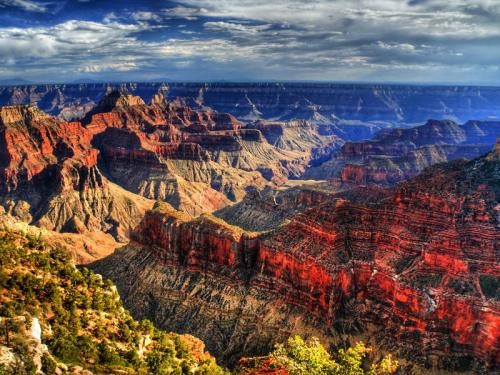Environment
Clean Water Act Permit For Sprawling Development Near San Pedro River Violates Endangered Species Act
As millions of migratory birds begin arriving at the San Pedro River on their annual journey north, local, regional and national conservation groups on Wednesday notified the U.S. Army Corps of Engineers and the U.S. Fish & Wildlife Service that they are poised to file a lawsuit to protect the San Pedro River and its surrounding wildlife habitat from a sprawling residential and commercial development. An Army Corps permit for the development is in violation of the Endangered Species Act.
- Read more
- 277 reads
U.S. EPA requires Fairfield, Calif. resin manufacturer to protect waterways from oil spills
The U.S. Environmental Protection Agency reached a settlement with Sunpol Resins & Polymers, Inc., to resolve federal Clean Water Act violations at its manufacturing facility in Fairfield, California. Sunpol will pay a $41,600 penalty as part of the agreement, and has already corrected its oil pollution prevention violations.
- Read more
- 248 reads
Lawsuit Challenges Air Board's Failure To Protect Southern California From Oil Refinery Pollution
Community and conservation groups on Wednesday sued the South Coast Air Quality Management District for allowing L.A.-area oil refineries and power plants to continue spewing massive amounts of smog-forming pollutants, threatening the health of millions of people already breathing the nation’s dirtiest air.
- Read more
- 303 reads
IUCN reports deepening rhino poaching crisis in Africa
The number of African rhinos killed by poachers has increased for the sixth year in a row with at least 1,338 rhinos killed by poachers across Africa in 2015, according to new data compiled by International Union for Conservation of Nature (IUCN) Species Survival Commission’s African Rhino Specialist Group (AfRSG).
- Read more
- 264 reads
Lost health and homes: the legacies of Chernobyl and Fukushima
Survivors of Chernobyl are still eating food with radioactive contamination above permissible limits thirty years after the nuclear catastrophe forced hundreds of thousands of people from their homes.
- Read more
- 268 reads
Washington Seafood Companies Agree to Cut Ozone-Depleting and Greenhouse Gas Refrigerant Releases
Two seafood processing and cold storage companies, Ocean Gold Seafoods Inc. and Ocean Cold LLC, have agreed to cut their releases of ozone-depleting and greenhouse gases from leaking refrigeration equipment at their facilities in Westport, Washington.
- Read more
- 279 reads
Ethiopian farmers need urgent assistance amid major drought, warns UN agency

FAO’s irrigation and income diversification projects have become instrumental in tackling the negative impacts of El Niño- induced drought for pastoral and agro-pastoral communities in Afar Region. 08 February 2016, Addis Ababa, Ethiopia.
- Read more
- 277 reads
Fukushima nuclear disaster will impact forests, rivers and estuaries for hundreds of years, warns Greenpeace report
The environmental impacts of the Fukushima Daiichi nuclear disaster will last decades to centuries, warns a new Greenpeace Japan report. Man-made, long-lived radioactive elements are absorbed into the living tissues of plants and animals and recycled through food webs, and carried downstream to the Pacific Ocean by typhoons, snowmelt, and flooding.
- Read more
- 330 reads
Environment ministers surprise Commission with support for higher EU 2030 carbon target

- Read more
- 262 reads
Forest Service Rejects Project That Would Have Spelled Disaster for Grand Canyon

The iconic Grand Canyon in Arizona may soon be ground zero for two massive development projects.
- Read more
- 284 reads
Human Rights
Fostering a More Humane World: The 28th Eurasian Economic Summi

Conscience, Hope, and Action: Keys to Global Peace and Sustainability

Ringing FOWPAL’s Peace Bell for the World:Nobel Peace Prize Laureates’ Visions and Actions

Protecting the World’s Cultural Diversity for a Sustainable Future

Puppet Show I International Friendship Day 2020

